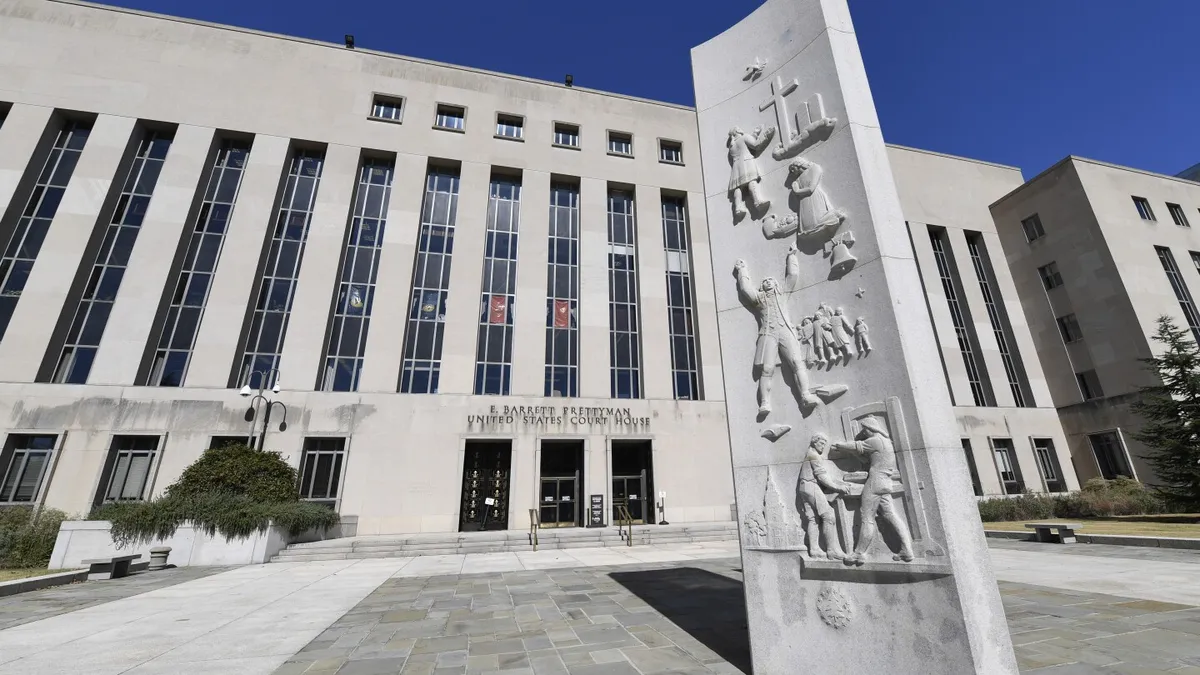
The federal judge, James “Jeb” Boasberg, who recently ruled against former President Donald Trump’s deportation plans, is now facing calls for his impeachment. Boasberg is no stranger to politically charged cases, particularly those involving the former president. Over his 14 years on the federal bench, he has tackled high-profile issues, including secret grand jury disputes during the special counsel investigations into Trump, and has overseen significant reforms in national security surveillance procedures following the Trump-Russia investigation.
A former homicide prosecutor in Washington, D.C., Boasberg earned his law degree from Yale University, where he also played basketball. His legal career began in the nation’s capital, and he has built a reputation as a principled jurist respected across the political spectrum. Appointed to the federal bench in 2011 by President Barack Obama, Boasberg's judicial experience dates back to his earlier appointment to the D.C. Superior Court by President George W. Bush.
During his nomination for the federal court, Boasberg was questioned by then-Republican Senator Jeff Sessions about the role of judges in making decisions. Boasberg firmly stated, “Judges should not work from a desired outcome in assessing the law and facts.” This statement reflects his commitment to following the law, regardless of the political implications involved.
As the chief judge of Washington’s federal court, Boasberg has had a front-row seat to the investigations led by special counsel Jack Smith into Trump. His role has included overseeing secret grand jury testimonies from key witnesses, including then-Vice President Mike Pence, who challenged a subpoena for his cooperation. In a significant ruling in 2023, Boasberg required Pence to testify before the grand jury while also allowing certain questions to remain off-limits. This case ultimately contributed to Trump’s indictment, although subsequent charges related to classified documents were dismissed by prosecutors after Trump's presidential victory.
Boasberg has presided over numerous cases involving defendants charged for their participation in the January 6 Capitol riot. Notably, he often imposed sentences that were more lenient than what prosecutors recommended, highlighting his methodical and patient judicial approach. In one memorable incident, he maintained composure while a member of the Proud Boys extremist group verbally attacked him during sentencing, demonstrating his commitment to fair proceedings regardless of external pressures.
Judge Boasberg is also recognized for his role on the Foreign Intelligence Surveillance Court during a tumultuous period when the FBI was investigating potential collusion between Trump’s 2016 campaign and Russia. A report from the Justice Department's inspector general pinpointed several errors in the surveillance applications submitted to the court. Boasberg publicly criticized the Justice Department for its lack of transparency and mandated reforms to ensure the accuracy of future warrant applications.
The latest controversy erupted when Boasberg issued an order halting deportation flights under wartime authorities, which Trump had invoked based on claims of an invasion by the Venezuelan gang Tren de Aragua. Despite his verbal order, two deportation flights continued to El Salvador, prompting Boasberg to convene a hearing to address this potential defiance of his ruling. The Justice Department has since sought to have Boasberg removed from the case, while Trump escalated the conflict by labeling the judge a “troublemaker and agitator” on social media, calling for his impeachment.
Chief Justice John Roberts responded to Trump's comments with a rare public statement, emphasizing that impeachment should not be used as a tool for political disagreements regarding judicial decisions. He reaffirmed the importance of the normal appellate review process, which exists to address such concerns.
As the legal landscape continues to evolve, Judge Boasberg's rulings and the resulting political ramifications highlight the intricate intersection of law and politics in contemporary America.